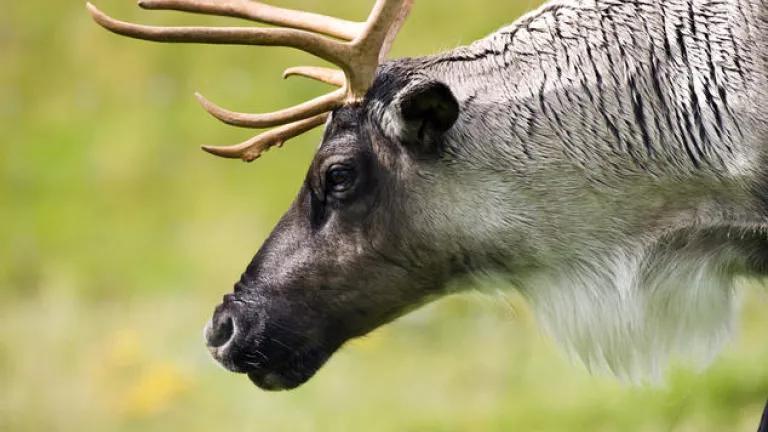Quebec: Boreal Caribou Protections Will Have to Wait…Again

VLADIMIR: Well? Shall we go?
ESTRAGON: Yes, let's go.They do not move.
—Samuel Beckett, Waiting for Godot
An absurdist, Samuel Beckett-like tragedy is playing out in Quebec. Boreal caribou face unprecedented declines, and the science is clear that the province needs to immediately stem industrial development’s erosion of their habitat. Yet yesterday, Quebec once again delayed concrete action, gifting logging and other industries at least several more years to continue business as usual. As Quebec defers protections, boreal caribou populations will continue to wane. Eventually, Quebec says, it will have the science and information it needs to act. But until that day comes, it will keep waiting...and waiting…until it is too late.
Quebec has known for decades that its caribou are in trouble. Herds have steadily declined across the province, as logging has eroded more and more of their homeland. A few years ago, the Val d’Or herd was in such dire straits that Quebec even proposed--and then scrapped--a plan to move them to a zoo. Canada first designated boreal caribou as threatened in 2003, and in its 2012 boreal caribou Recovery Strategy, told provinces they had five years to put together plans to protect and recover boreal caribou ranges to minimum viable levels. A year and a half past the deadline, Quebec has done next to nothing—except repeatedly announce that it will continue gathering information until it has decided it has enough information to do something.
Yesterday, Quebec kicked the can even further down the road, announcing that a formal boreal caribou protection strategy is still several years away. Instead it will begin a three-year-long consultation process before “identify[ing] possible solutions.” This means that boreal caribou will have to wait until 2022 for Quebec to even chart a real course for protection. Quebec has also opted to tether the species’ fate to the needs and priorities of the logging industry, folding future discussions of protection into broader forestry planning discussions. The strategy does include some concrete interim measures to safeguard a few select habitat areas, but these don’t even come close to the essential large-scale protections called for in the Recovery Strategy.
Quebec’s announcement is not, as it claims, some neutral attempt to balance economic and environmental interests. Instead, it’s another decisive victory for the logging industry, which will be able to continue operating largely without regard for boreal caribou for at least three more years. Each year in Quebec, logging claims over 500,000 acres of forest, an area two and a half times the size of New York City, and is the most widespread cause of boreal caribou declines across Canada. And it’s not just caribou that are suffering. Boreal caribou are an “indicator species,” meaning their decline signals trouble in the boreal forest more broadly, including for wildlife such as the pine marten, Canada lynx, and treasured songbirds. Meanwhile, Indigenous Peoples across the province are losing a species that has been vital to their ways of life for millennia.
Quebec is, ultimately, damaging its reputation in the international marketplace. Over 40 percent of the province’s forest products end up in the United States, where they are used for everything from lumber to packaging. Recently, major U.S. tissue producers, including Procter & Gamble, have come under fire for making their throwaway products such as Charmin toilet paper with trees from boreal caribou habitat. Quebec’s failure to implement protections will erode the province’s remaining veneer of sustainability, fueling the public’s calls for tissue producers and others to find more sustainable alternatives.
Quebec has the information it needs to act now, in partnership with Indigenous Peoples. This is Quebec’s chance to not only prevent incredible ecological tragedy, but to position itself as a leading source of sustainable forest products. But it has to stop deferring action. If boreal caribou are going to survive another act, the wait for habitat protection has to end.

